| |
| |
| |
| Presented By Facebook |
| |
| Axios AM |
| By Mike Allen ·Oct 21, 2020 |
| 🐪 Happy Wednesday. Today's Smart Brevity™ count: 1,151 words ... 4½ minutes. 💨 Get smart, 5G fast: Axios debuts a free, 5-part video "short course" on 5G to get you up to speed on what it is, who's involved, and why it matters. Sign up here. |
| |
| |
| 1 big thing: Overwhelming aftershocks of the pandemic |
 |
|
| Illustration: Eniola Odetunde/Axios |
| |
| The pandemic will wreak havoc on the U.S. health care system long after it ends — whenever that may be, Caitlin Owens writes. - Why it matters: The pre-pandemic health care system was already full of holes, many of which have been exposed and exacerbated over the past several months.
The pandemic has caused a crushing wave of mental health problems, exposed longstanding racial disparities, caused people to delay care for other conditions, and likely created new long-term health problems for many coronavirus survivors. - The number of people looking for help with anxiety or depression has dramatically increased since last year, according to a new report from the advocacy group Mental Health America.
- Patients with long-term side effects will have to navigate the same patchwork system that has made chronic conditions so expensive for years.
- There could be a spike in demand for care for unrelated health conditions that went undiagnosed or untreated during the pandemic. Cancer screenings, for example, plummeted at the height of the pandemic.
Share this story. |
    |
| |
| |
| 2. This is quite a graph: CEO vs. consumer confidence |
 Data: The Conference Board. Chart: Axios Visuals Consumers remain uncertain about the economy, but CEOs tell the Conference Board they're feeling incredibly confident, Dion Rabouin writes in Axios Markets. - Confidence among chief executives jumped 19 points from the previous reading in July — rising above the 50-point threshold that reflects more positive than negative responses for the first time since 2018.
Between the lines: Judging by their stated expectations, CEO confidence isn't a good sign for workers. Over the next 12 months, CEOs said they expect to cut jobs, hold down employee pay and reduce capital spending. - 34% of CEOs expected a net reduction in their workforce, and another 34% expected no change.
- 21% foresaw no increase in their employees' wages, and 5% said they may reduce wages.
💰 Get Dion Rabouin's original thinking each day in Axios Markets. |
    |
| |
| |
| 3. Scoop: Israel's secret embassy in Bahrain |
 |
|
| Illustration: Annelise Capossela/Axios |
| |
| 🇮🇱 This story is from Barak Ravid's new weekly newsletter, Axios from Tel Aviv, which launches today. Sign up here. Israel has been conducting undercover diplomacy in Bahrain for more than a decade through a front company listed as a commercial consulting firm. - Why it matters: The existence of the covert diplomatic mission in the Bahraini capital Manama shows the depth of a secret relationship that came out into the open with a White House ceremony last month.
The existence of the secret diplomatic office remained under an Israeli government gag order for 11 years. A short report about it appeared on Israel's Channel 11 news last week. - Today, Barak is reporting many more details based on conversations with Israeli and Bahraini sources, as well as Bahraini Commerce Ministry records.
Keep reading. |
    |
| |
| |
| A message from Facebook |
| We support updated internet regulations |
| |
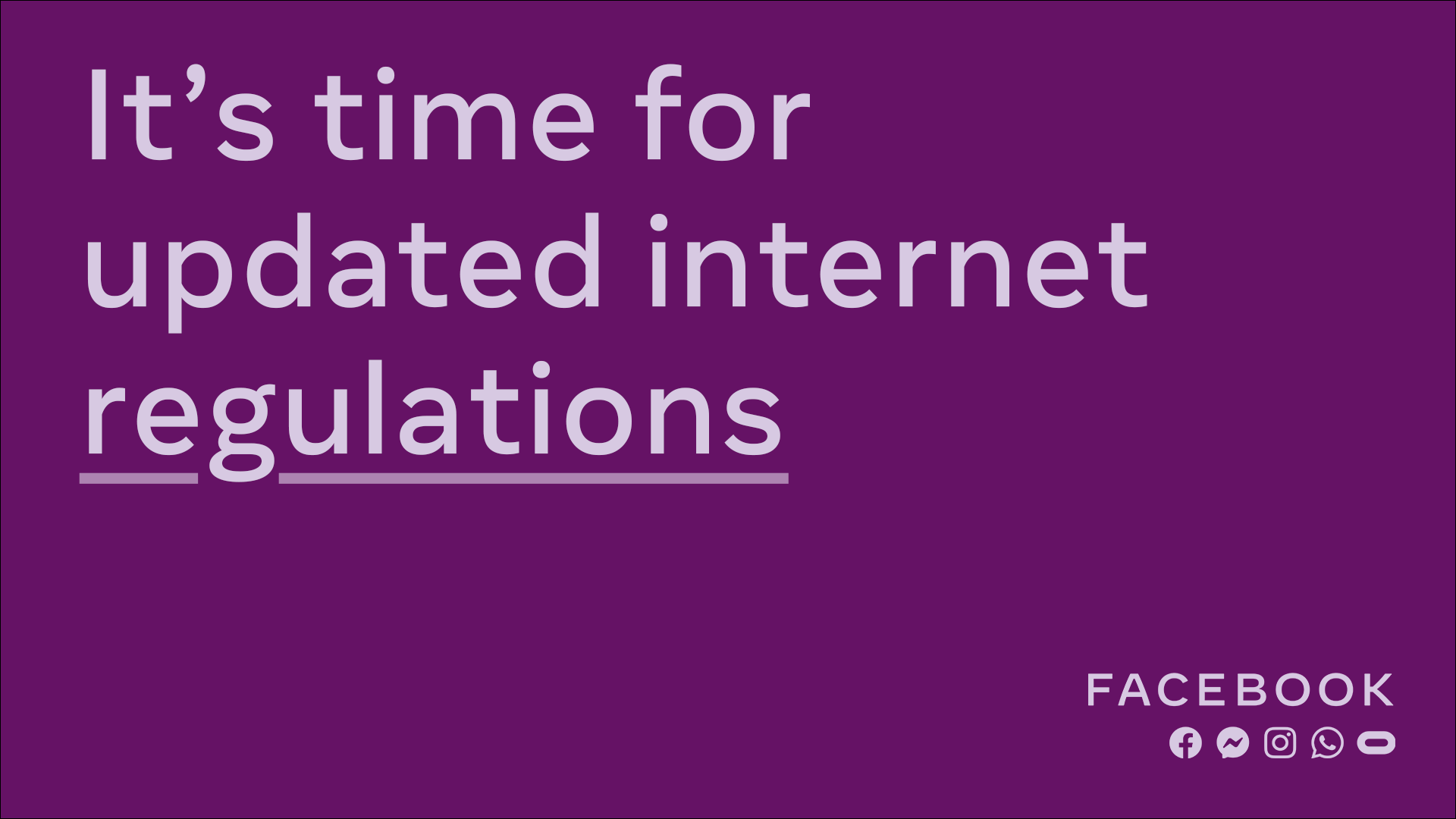 |
| |
| At Facebook, we continue to take steps to improve our platforms such as tripling our safety and security teams, building privacy tools, and more. Updated internet regulations will set standards for addressing today's toughest challenges. Read why we support updated internet regulations. |
| |
| |
| 4. Pic du jour: Starling cloud |
| Photo: Jeff J Mitchell/Getty Images Starlings gather in murmurations in Gretna, Scotland, yesterday. - Starlings are thought to flock in large groups in part to make it more difficult for predators to target a single bird. It also keeps them warm.
- They gather over their autumn roosting site just before dusk, and perform acrobatic whirling motions before setting down for the evening.
|
    |
| |
| |
| 5. U.S. vs. Google: The siege begins |
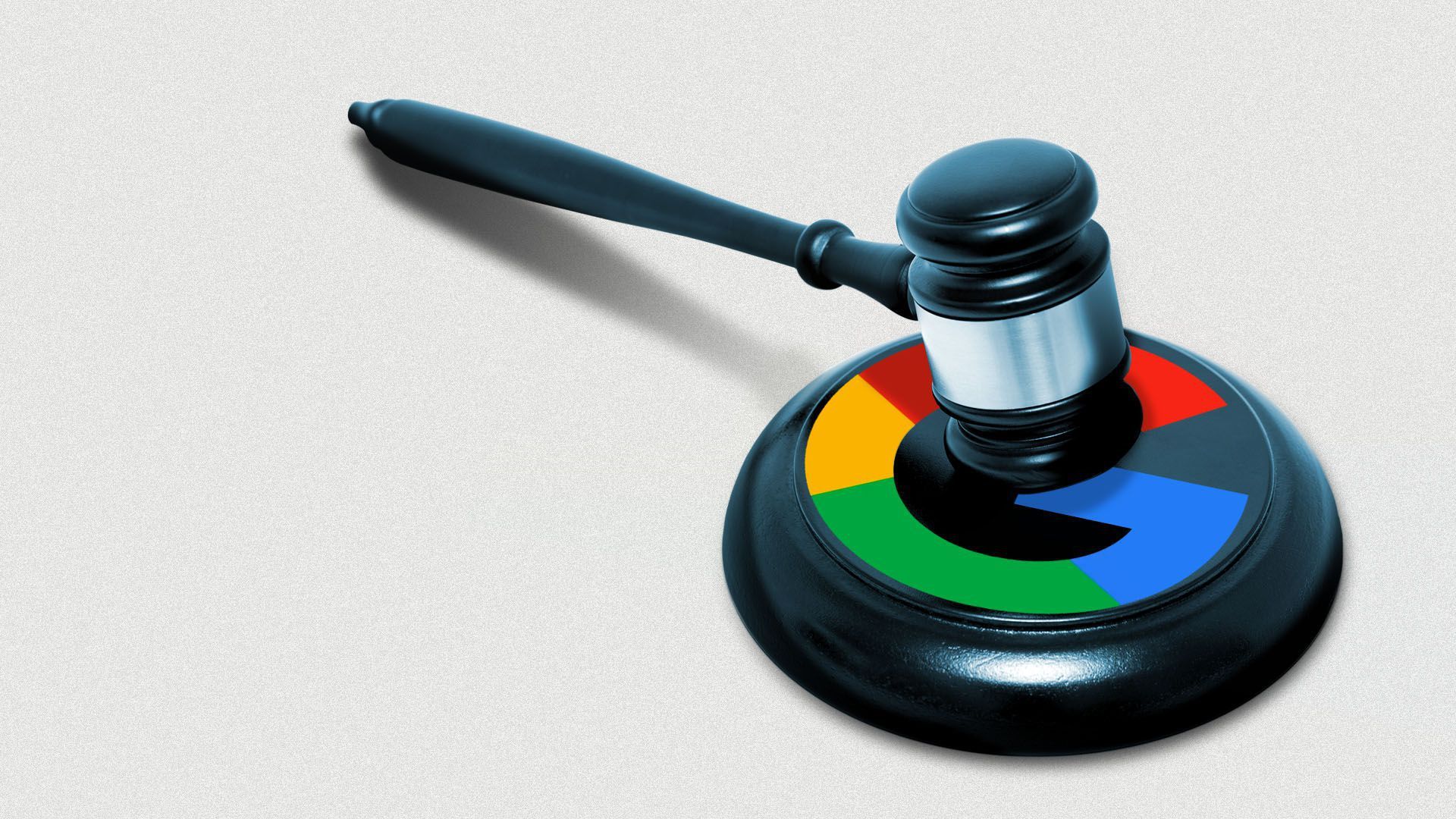 |
|
| Illustration: Sarah Grillo/Axios |
| |
| Once a generation, federal regulators decide to take on a dominant tech company, Axios' Scott Rosenberg, Ashley Gold and Kyle Daly write. - Two decades ago, it was Microsoft (1998). Four decades ago, IBM was the target (case lasted through the '70s).
- The Justice Department fired the starter pistol yesterday on what's likely to be a years-long legal siege of Big Tech by the U.S. government when it filed a major antitrust suit against Google.
Why it matters: Lawmakers, experts and critics have warned over the past decade that Big Tech's unprecedented concentration of power threatens competition, free speech, consumer choice and user privacy. The bottom line: Courts move slowly and tech moves fast. That means antitrust enforcement actions often lag the marketplace — and by the time cases conclude, they barely seem relevant. - Go deeper. Google's 20-year path from David to Goliath, by Scott Rosenberg.
- Even deeper: Microsoft case's long shadow over Google.
|
    |
| |
| |
| 6. Beyond the bubbles: Worsening opioid crisis overshadowed by politics |
| The White House and the Biden campaign have policy papers on opioid addiction, but the issue has barely registered in the campaign, overshadowed by the pandemic's human and economic toll, AP reports. - After a one-year drop in 2018, U.S. opioid overdose deaths increased again in 2019, topping 50,000 for the first time, according to provisional CDC data.
- While national data isn't available for most of 2020, AP surveyed states that are reporting overdoses, and found more drug-related deaths.
🥊 If you only read one paragraph: What that looks like on the ground is mothers donating to GoFundMe accounts and Facebook campaigns, so other mothers can bury their children who've overdosed. - Some parents even reserve a casket while their child is still alive so they are prepared for what they believe is inevitable.
- Others become legal guardians of their grandchildren.
📊 Unintentional drug overdose deaths in Ohio since 2007: Data: Ohio Department of Health, Bureau of Vital Statistics. Graphic: AP |
    |
| |
| |
| 7. 🗳️ Tales from the trail |
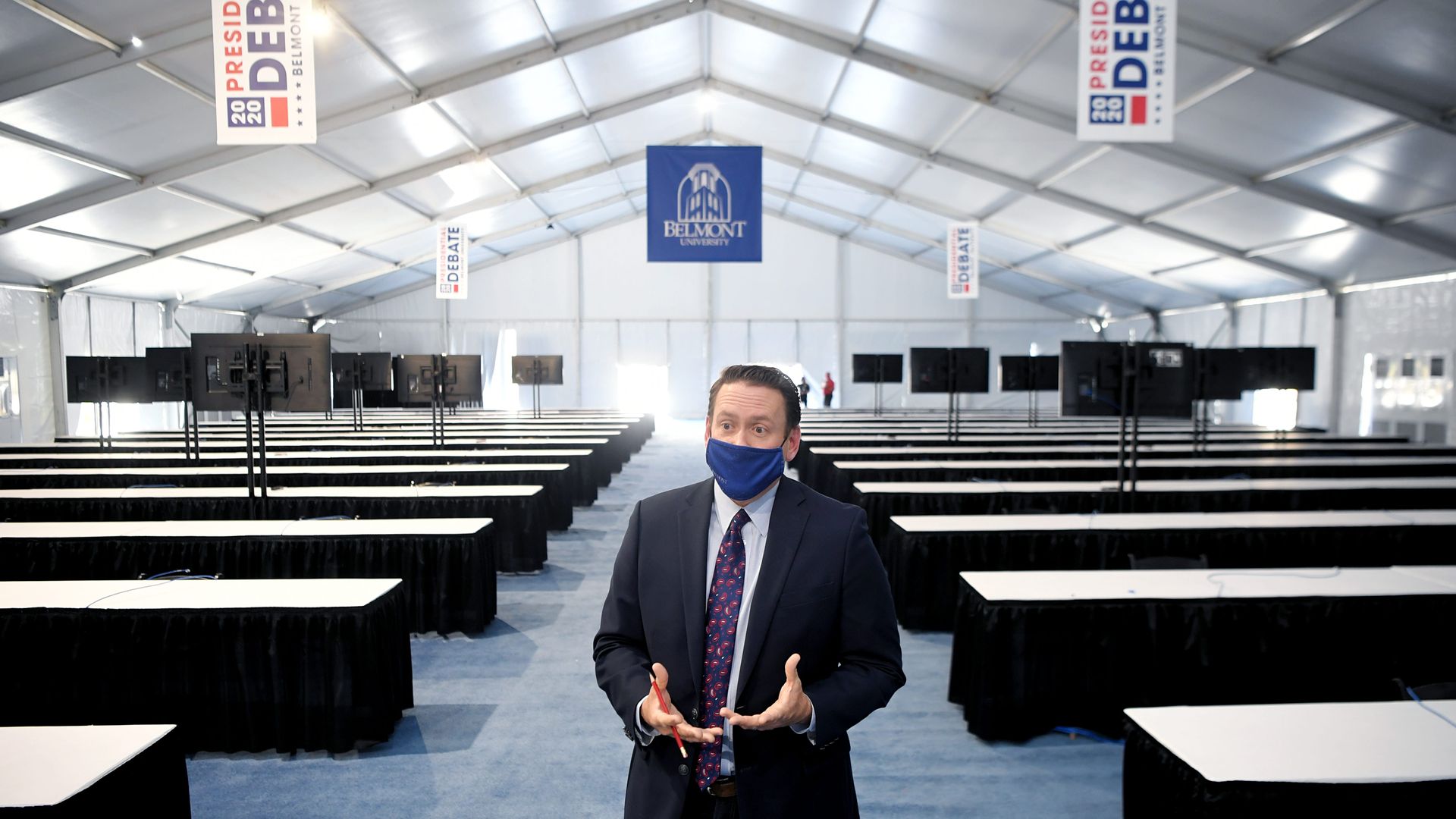 |
|
| Belmont University's John Carney gives a tour of the media filing center for tomorrow's presidential debate, in Nashville. Photo: Shelley Mays/The Tennessean |
| |
| ⏰ President Trump cut short a "60 Minutes" interview with Lesley Stahl, slated to run Sunday. He tweeted a mocking video of her when she was briefly maskless, and later added: - "I am considering posting my interview ... PRIOR TO AIRTIME! ... so that everybody can get a glimpse of what a FAKE and BIASED interview is all about." (CBS News)
🇨🇳N.Y. Times: China is one of three foreign nations (along with Britain and Ireland) where Trump maintains a bank account, according to his tax records. - "The Chinese account is controlled by Trump International Hotels Management."
|
    |
| |
| |
| 8. QAnon escalates during election |
 |
|
| A car with references to QAnon, before a Trump rally in Prescott, Ariz., Monday. Photo: Caitlin O'Hara/Getty Images |
| |
| The QAnon conspiracy theory is growing — and being weaponized to boost President Trump ahead of the election, Sara Fischer and Stef Kight write. - Why it matters: What began as a single conspiracy theory linking Hillary Clinton to child trafficking four years ago is now part of a convoluted web of falsehoods being spread to undermine Joe Biden.
The backstory: In 2016, the Pizzagate conspiracy theory claimed that elites and Hillary Clinton's campaign manager were involved in a child sex trafficking ring being operated out of a popular pizza place. - But Pizzagate was just the beginning. The idea of an elite child trafficking system has formed the central tenet of the QAnon universe.
What we're watching: Nearly a dozen QAnon supporters are running for Congress. And of Republicans who know about QAnon, 41% said it is a somewhat or very good thing for the country, according to Pew Research Center. |
    |
| |
| |
| 9. AOC, Ilhan Omar draw 400,000 to Twitch to get out vote |
| Screenshot: Axios More than 430,000 people tuned in simultaneously last night to Twitch — a live-streaming platform with over 15 million daily active users — to watch Rep. Alexandria Ocasio-Cortez (D-N.Y.) play a hit video game as part of an effort to promote voting, Ina Fried reports. - Why it matters: The event brought in what is reportedly the third-biggest audience ever for an individual Twitch stream.
- Ocasio-Cortez played Among Us, joined by popular gamers and fellow Rep. Ilhan Omar (D-Minn.).
🎮 If you want to know how to take on Ocasio-Cortez (at least in video games), Omar posted the specs of the gaming system she used vs. her fellow Democrat. |
    |
| |
| |
| 10. ⚾ World Series' fewest fans in 111 years |
| Photo: David J. Phillip/AP This is the fifth inning (above) and sixth inning (below) of Game 1 of the World Series in Arlington, Texas. Dodgers beat Tampa Bay Rays, 8-3. MLB allowed about 28% of capacity in the 40,518-seat Globe Life Field, where the crowd was widely dispersed and the roof was open, AP reports. - The official attendance of 11,388 was the smallest for the Series since 1909, when 10,535 attended Game 6 between the Pirates and Tigers at Detroit's Bennett Park, according to Elias Sports Bureau.
An overwhelming majority of last night's fans wore Dodger blue. Photo: Eric Gay/AP |
    |
| |
| |
| A message from Facebook |
| We support updated internet regulations |
| |
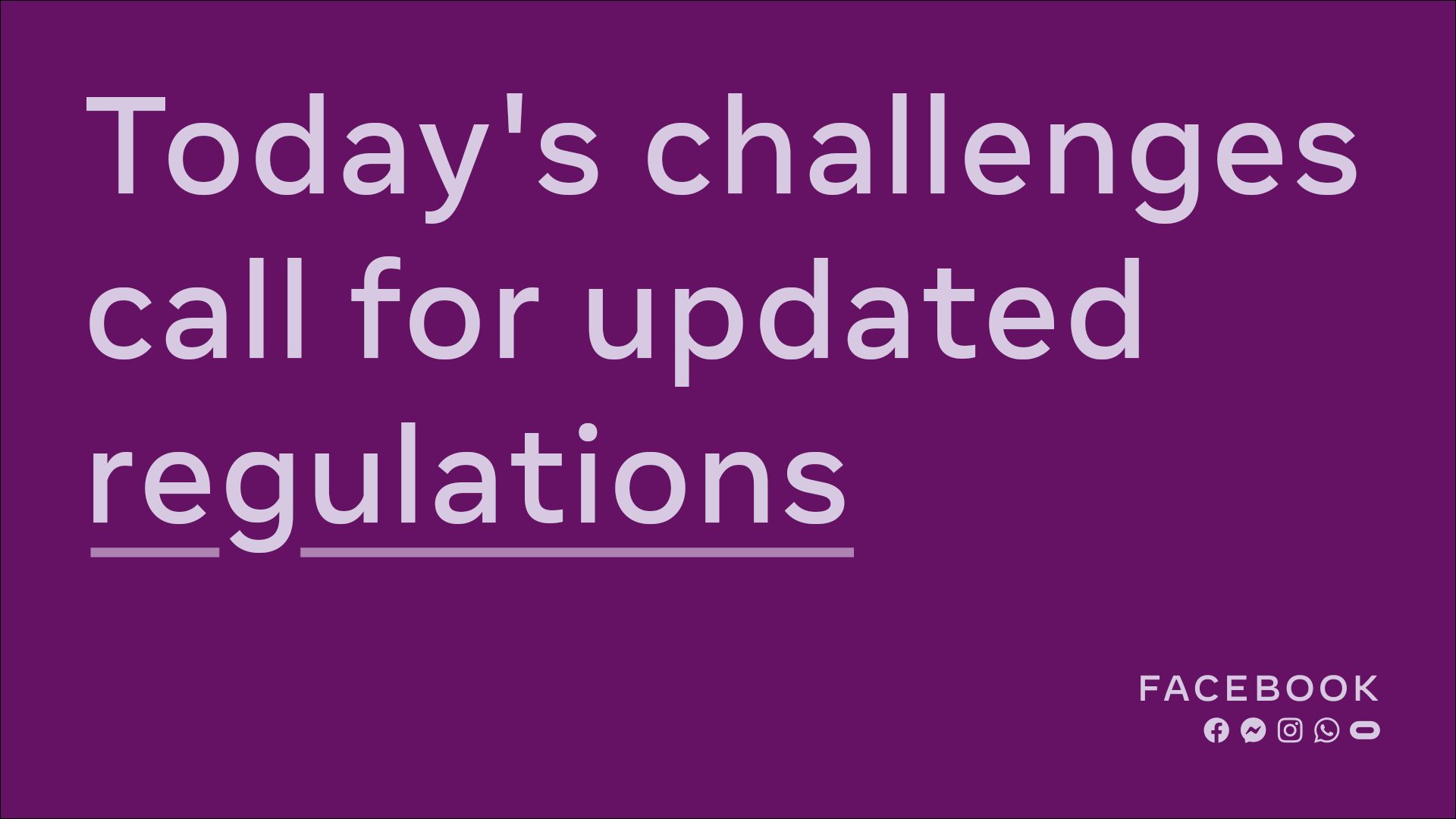 |
| |
We support new regulations that hold companies, including Facebook, accountable on issues including: - Combating foreign election interference.
- Protecting people's privacy.
- Enabling safe and easy data transfer between platforms.
Read why we support updated internet regulations. |
| |
| 📱 Thanks for starting your day with us. Invite your friends to sign up for Axios AM/PM. |






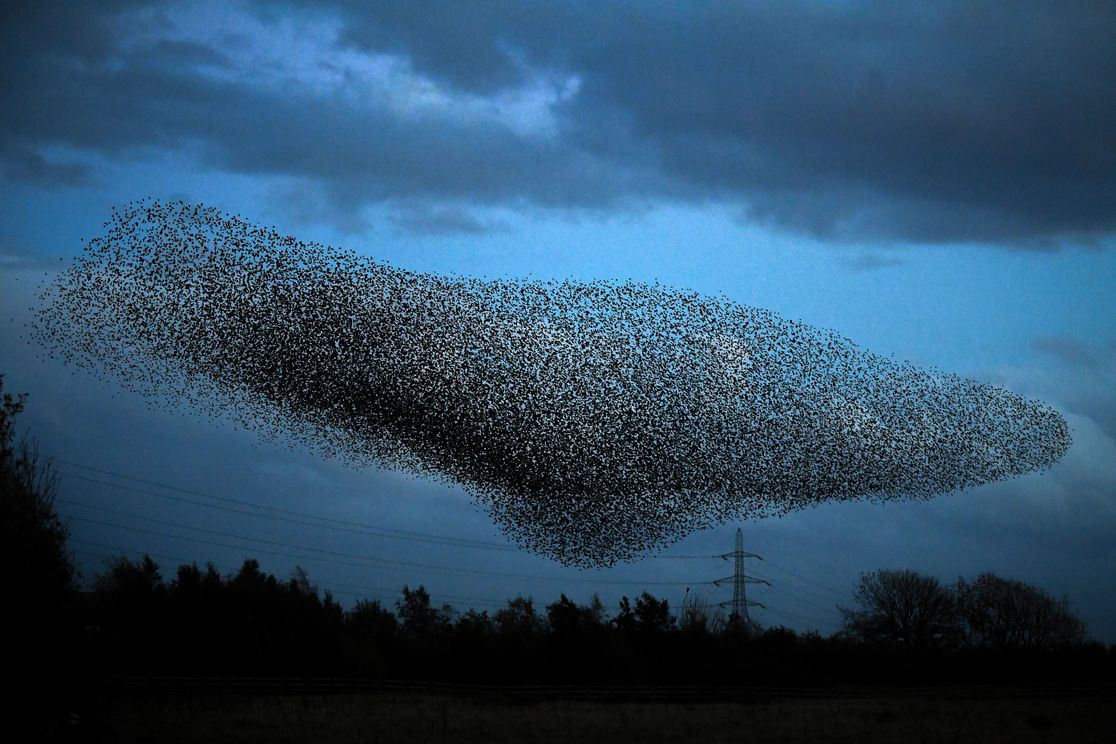

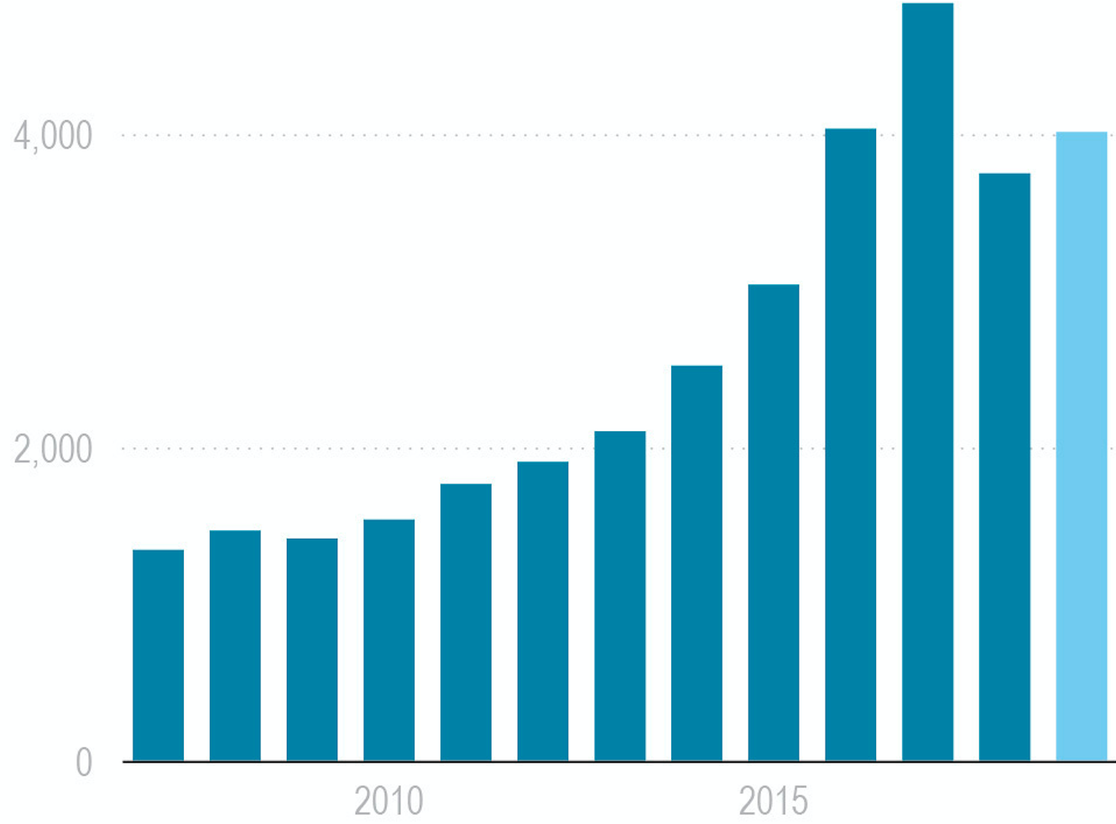


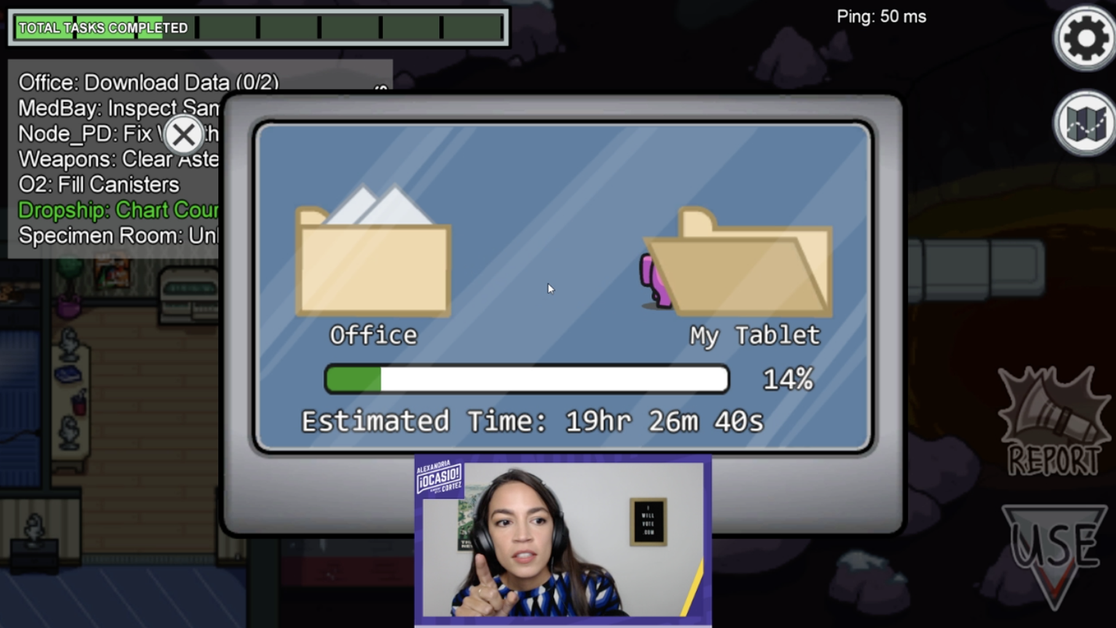
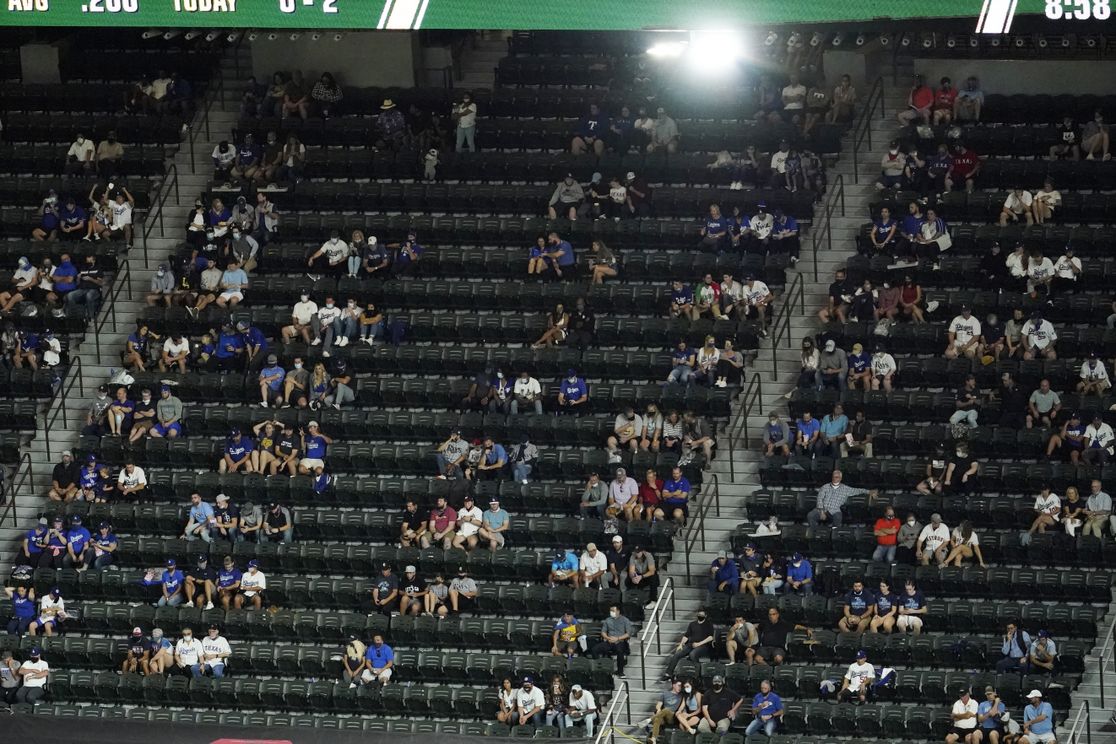
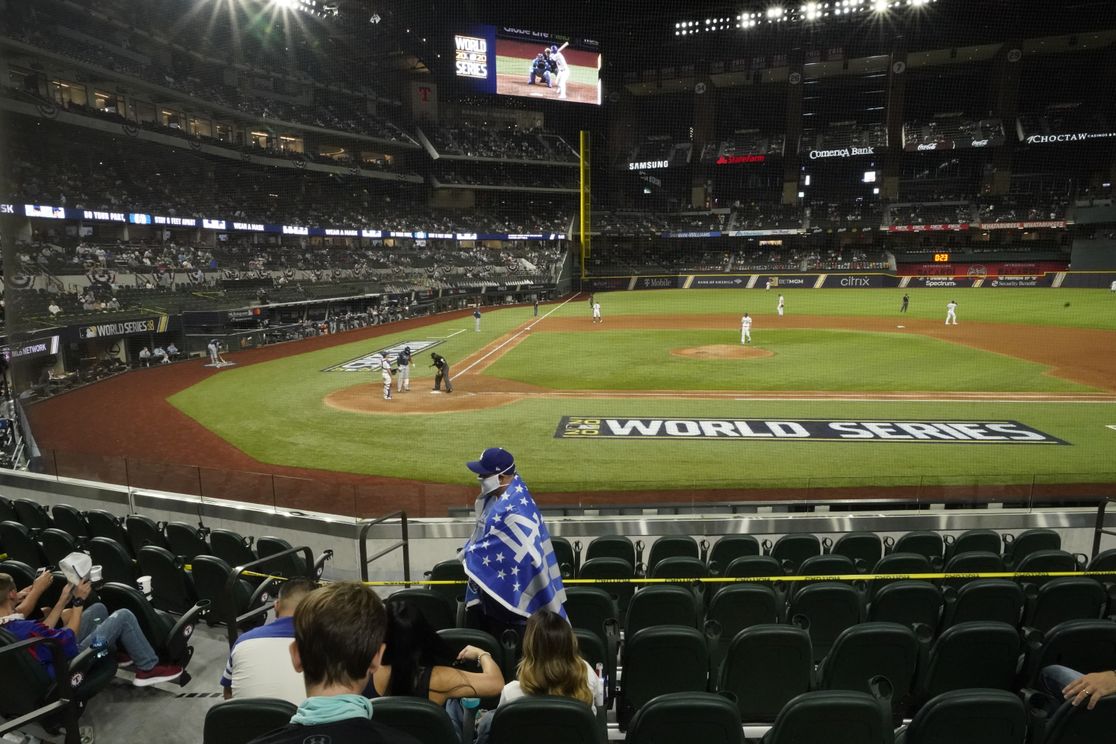
No comments:
Post a Comment